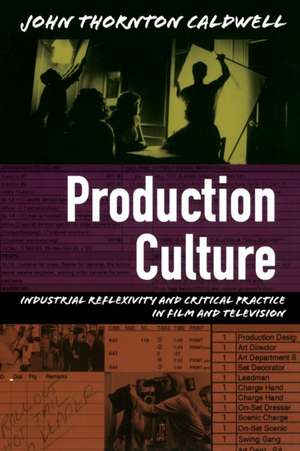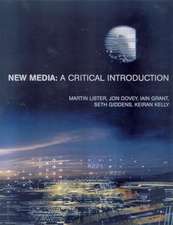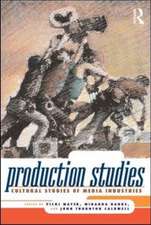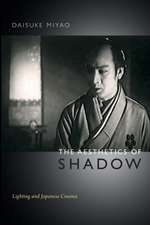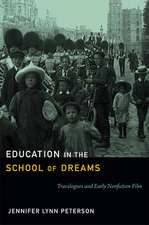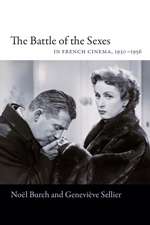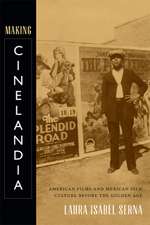Production Culture – Industrial Reflexivity and Critical Practice in Film and Television: Console-ing Passions
Autor John Thornton Caldwellen Limba Engleză Paperback – 24 mar 2008
Din seria Console-ing Passions
-
 Preț: 167.58 lei
Preț: 167.58 lei -
 Preț: 249.26 lei
Preț: 249.26 lei -
 Preț: 265.41 lei
Preț: 265.41 lei -
 Preț: 308.33 lei
Preț: 308.33 lei -
 Preț: 266.18 lei
Preț: 266.18 lei -
 Preț: 301.59 lei
Preț: 301.59 lei -
 Preț: 303.72 lei
Preț: 303.72 lei -
 Preț: 249.01 lei
Preț: 249.01 lei -
 Preț: 260.02 lei
Preț: 260.02 lei -
 Preț: 264.26 lei
Preț: 264.26 lei -
 Preț: 264.26 lei
Preț: 264.26 lei -
 Preț: 268.31 lei
Preț: 268.31 lei -
 Preț: 264.64 lei
Preț: 264.64 lei -
 Preț: 210.19 lei
Preț: 210.19 lei -
 Preț: 235.52 lei
Preț: 235.52 lei -
 Preț: 264.26 lei
Preț: 264.26 lei -
 Preț: 233.03 lei
Preț: 233.03 lei -
 Preț: 262.52 lei
Preț: 262.52 lei -
 Preț: 230.83 lei
Preț: 230.83 lei - 23%
 Preț: 777.50 lei
Preț: 777.50 lei -
 Preț: 193.06 lei
Preț: 193.06 lei -
 Preț: 261.93 lei
Preț: 261.93 lei -
 Preț: 265.59 lei
Preț: 265.59 lei -
 Preț: 260.79 lei
Preț: 260.79 lei -
 Preț: 265.20 lei
Preț: 265.20 lei -
 Preț: 248.24 lei
Preț: 248.24 lei
Preț: 241.12 lei
Nou
Puncte Express: 362
Preț estimativ în valută:
46.14€ • 50.11$ • 38.76£
46.14€ • 50.11$ • 38.76£
Carte disponibilă
Livrare economică 01-15 aprilie
Livrare express 18-22 martie pentru 37.25 lei
Preluare comenzi: 021 569.72.76
Specificații
ISBN-13: 9780822341116
ISBN-10: 0822341115
Pagini: 464
Ilustrații: 82 illustrations
Dimensiuni: 151 x 224 x 26 mm
Greutate: 0.62 kg
Editura: MD – Duke University Press
Seria Console-ing Passions
ISBN-10: 0822341115
Pagini: 464
Ilustrații: 82 illustrations
Dimensiuni: 151 x 224 x 26 mm
Greutate: 0.62 kg
Editura: MD – Duke University Press
Seria Console-ing Passions
Cuprins
Acknowledgments vii
Introduction: Industry Reflexivity and Common Sense 1
Chapter 1: Trade Stories and Career Capital 37
Chapter 2: Trade Rituals and Turf Marking 69
Chapter 3: Trade Images and Imagined Communities (Below the Line) 110
Chapter 4: Trade Machines and Manufactured Identities (Below the Line) 150
Chapter 5: Industrial Auteur Theory (Above the Line/Creative) 197
Chapter 6: Industrial Identity Theory (Above the Line/Business) 232
Chapter 7: Industrial Reflexivity as Viral Marketing 274
Conclusion: Shoot-Outs, Bake-Offs, and Speed Dating (Manic Disclosure/Non-Disclosure 316
Appendix 1: Method: Artifacts and Cultural Practices in Production Studies 345
Appendix 2: A Taxonomy of DVD Bonus Track Strategies and Functions 362
Appendix 3: Practitioner Avowal/Disavowal (Industrial Doublespeak) 368
Appendix 4: Corporate Reflexivity vs. Worker Reflexivity (The Two Warring Flipsides of Industrial Self-Disclosure) 370
Notes 373
Works Cited 433
Index 445
Introduction: Industry Reflexivity and Common Sense 1
Chapter 1: Trade Stories and Career Capital 37
Chapter 2: Trade Rituals and Turf Marking 69
Chapter 3: Trade Images and Imagined Communities (Below the Line) 110
Chapter 4: Trade Machines and Manufactured Identities (Below the Line) 150
Chapter 5: Industrial Auteur Theory (Above the Line/Creative) 197
Chapter 6: Industrial Identity Theory (Above the Line/Business) 232
Chapter 7: Industrial Reflexivity as Viral Marketing 274
Conclusion: Shoot-Outs, Bake-Offs, and Speed Dating (Manic Disclosure/Non-Disclosure 316
Appendix 1: Method: Artifacts and Cultural Practices in Production Studies 345
Appendix 2: A Taxonomy of DVD Bonus Track Strategies and Functions 362
Appendix 3: Practitioner Avowal/Disavowal (Industrial Doublespeak) 368
Appendix 4: Corporate Reflexivity vs. Worker Reflexivity (The Two Warring Flipsides of Industrial Self-Disclosure) 370
Notes 373
Works Cited 433
Index 445
Recenzii
John Thornton Caldwells study of production cultures adds enormously to our knowledge of a larger media culture. Descriptions of proper uniforms for pitch meetings, executive autobiographical narratives, trade press accountssuch details, large and small, become sites for rich analysis. The result is a distinct perspective on how television and film are createdand more significantly, on how the creators understand and explain their work. Horace Newcomb, Director of the Peabody Awards and Professor of Telecommunications, University of Georgia Production Culture is a stunningly original contribution to film and television studies. John Thornton Caldwells argumentthat we can learn a lot about the production of culture by looking at the cultures of productionis borne out in an analysis that ranges across texts, populations, and institutional and physical spaces. This is a superb book. Anna McCarthy, author of Ambient Television: Visual Culture and Public Space
"John Thornton Caldwell's study of 'production cultures' adds enormously to our knowledge of a larger media culture. Descriptions of proper 'uniforms' for 'pitch meetings,' executive autobiographical narratives, trade press accounts--such details, large and small, become sites for rich analysis. The result is a distinct perspective on how television and film are created--and more significantly, on how the creators understand and explain their work." Horace Newcomb, Director of the Peabody Awards and Professor of Telecommunications, University of Georgia "Production Culture is a stunningly original contribution to film and television studies. John Thornton Caldwell's argument--that we can learn a lot about the production of culture by looking at the cultures of production--is borne out in an analysis that ranges across texts, populations, and institutional and physical spaces. This is a superb book." Anna McCarthy, author of Ambient Television: Visual Culture and Public Space
"John Thornton Caldwell's study of 'production cultures' adds enormously to our knowledge of a larger media culture. Descriptions of proper 'uniforms' for 'pitch meetings,' executive autobiographical narratives, trade press accounts--such details, large and small, become sites for rich analysis. The result is a distinct perspective on how television and film are created--and more significantly, on how the creators understand and explain their work." Horace Newcomb, Director of the Peabody Awards and Professor of Telecommunications, University of Georgia "Production Culture is a stunningly original contribution to film and television studies. John Thornton Caldwell's argument--that we can learn a lot about the production of culture by looking at the cultures of production--is borne out in an analysis that ranges across texts, populations, and institutional and physical spaces. This is a superb book." Anna McCarthy, author of Ambient Television: Visual Culture and Public Space
Notă biografică
Textul de pe ultima copertă
""Production Culture" is a stunningly original contribution to film and television studies. John Thornton Caldwell's argument--that we can learn a lot about the production of culture by looking at the cultures of production--is borne out in an analysis that ranges across texts, populations, and institutional and physical spaces. This is a superb book."--Anna McCarthy, author of "Ambient Television: Visual Culture and Public Space"
Descriere
An ethnography of film and video production culture in Los Angeles
